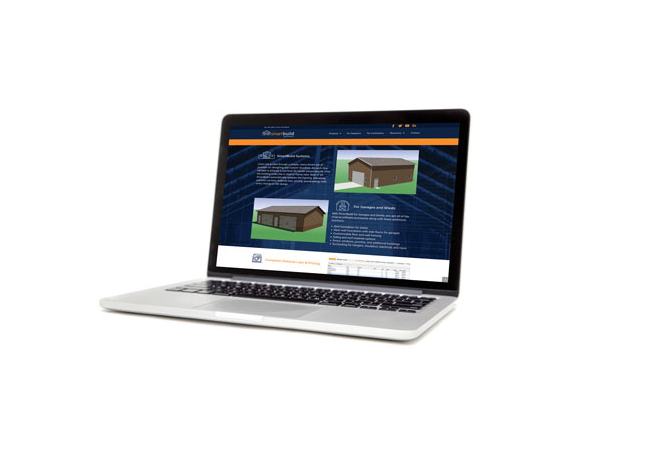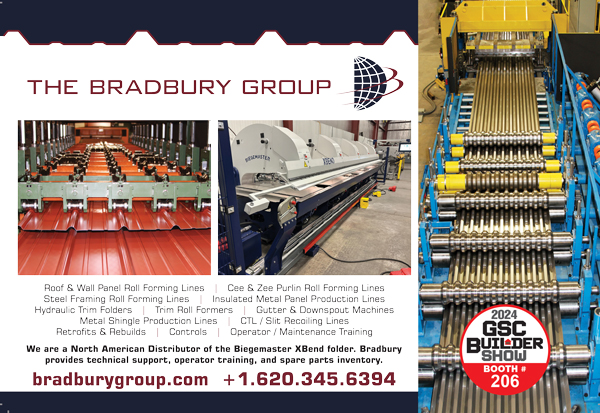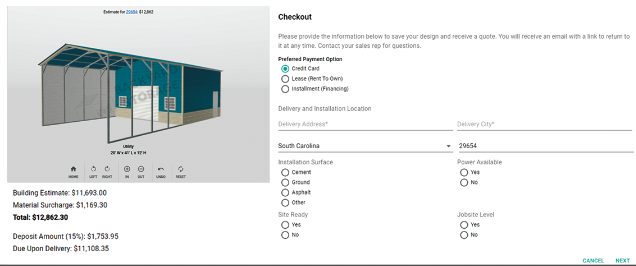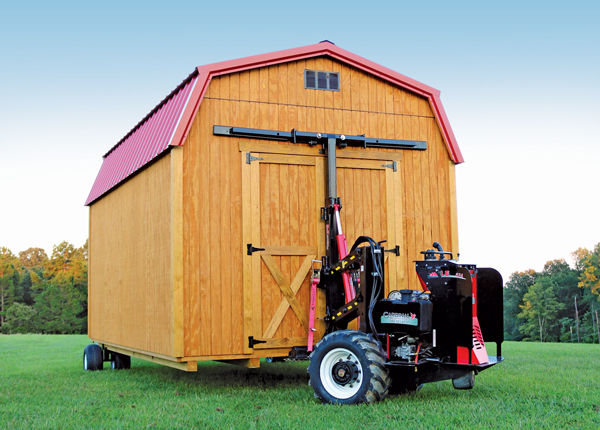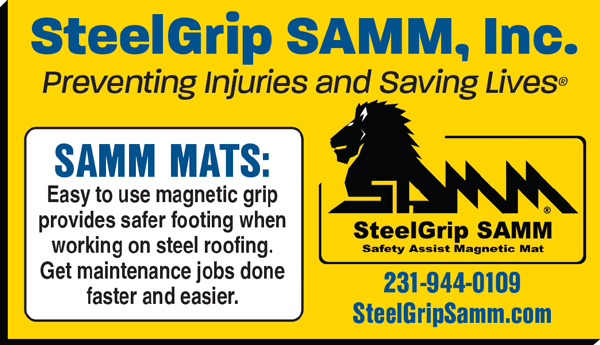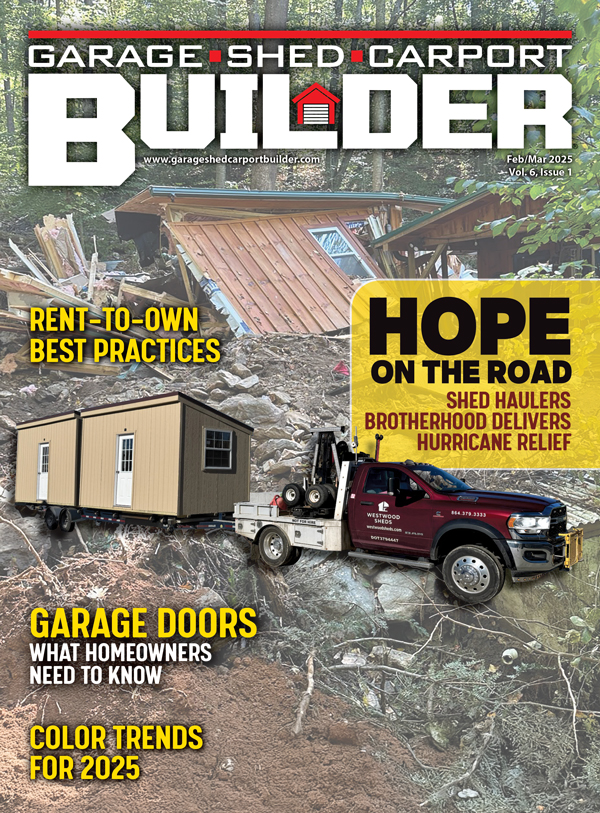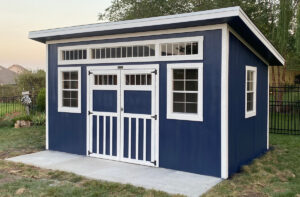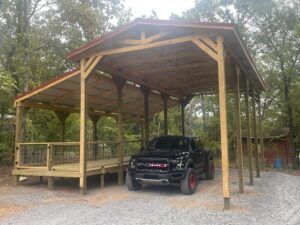By Shannon Latham
It’s obvious that the emergence of tech platforms in the shed industry are here to stay. I can remember very clearly sitting in a computer class during the 8th grade and attempting to learn about the details of RAM (random access memory), and ROM (read-only memory). I recall being overwhelmed by the complexity of all the things that made up a computer and the programs that made it work.
I was bored! So bored! I was usually lost in a daydream, thinking about baseball or drawing a picture to attempt to get out of learning about this dreadful tool called the computer.
Skip forward a few years and computers were everywhere. We even had one of the first home computers made by Apple in our living room. I can remember all the advice coming from my parents’ peers: “Go get a job in computers!”
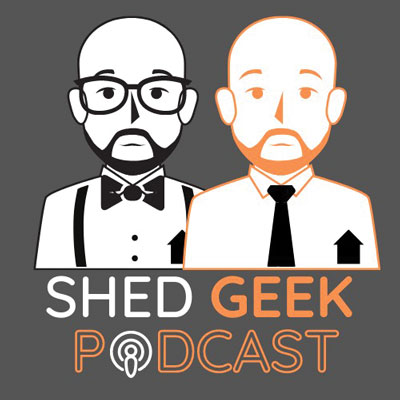
I wasn’t exactly sure what that meant; to be honest, I’m still not. Yet, the continued presence of computers (even more so tech software and gadgets) have steadily taken up more space in my head that once were reserved for my imagination. Nonetheless, computers are still here today, and so are all those jobs working in computers, on computers, and with all that software that makes our lives easy, right? (I say that tongue in cheek.)
For the most part, I consider myself tech challenged. I’ve always been more of a creative type, and for me that means it’s difficult to use someone else’s creation. I usually identify with the person who mutters, “Smartphone? I guess I’m not smart enough to use it.”
It has taken me a while to improve my tech skills; I’m not one to adjust to change very quickly. I’ve learned this is a common denominator among much of the shed industry.
Change is difficult; it interrupts consistency and stretches me to grow, yet I find two things to be true. First, as I begin to dive into these changes, more often than not I find it gets easier and even helpful over time. Second, tech is here to stay and we are not exempt from it in the shed industry.
So what do we do about it? We learn; we get involved; we use these platforms that continue to emerge to lift our industry to new heights. Even if we go begrudgingly — we go!
Is it just me? Is all this just the rumblings of my one-dimensional point of view? To answer this question, I called upon a few of my shed-industry acquaintances. Calling them “acquaintances” doesn’t really do justice to them. They are friends and fellow shed geeks. They are Arlan Riehl, co-owner of Liberty Sheds in Due West, South Carolina, and Ervin Stuttzman, co-owner of Summit Portable Buildings in Farmington, Missouri.
I asked what their thoughts were on all the tech we’ve seen emerging over the past few years and how automation seemingly increases without fail. When you’re in the shed industry, you can’t help but develop a couple (or, in Kyle’s and my experiences, a couple dozen) friendships along the way. I appreciate the opinions and ramblings of my comrades when asking them to give me some perspective outside my limited outlook.
In no particular order, here are the thoughts they shared when I asked them to describe how the technological side of the industry has emerged since their initiation into the shed life.
Ervin Stuttzman, Summit Portable Buildings
Ervin says: My first real connection to the shed industry started in 2006. I started out hauling sheds for a small company in northern Missouri, which is now owned by my brother. Fast forward to April 2011, I started running a sales location selling sheds, carports, swing sets, and lawn furniture. I grew up with hardly any technology, so that, in itself, was new to me. I created a Facebook page and also used Craigslist to post some content. I would say I used it moderately but not as much as I could have. I was located on the main drag in a town of approximately 16,000 people and seemed to do well with drive-by customers and referrals.
Moving forward to 2016, I started running a shed manufacturing company that I am now co-owner of. It wasn’t until that point I started to realize the power of an online presence. I could see the direct correlation of higher sales numbers by dealers maximizing social media and dealers that didn’t see the value of it. There was a statement made by one of our dealers: “The rural people in my area don’t use internet, therefore it’s not going to do much good for me to post content on social media.’’ Although that statement may have some truth to it, I would venture to say there are far more rural people using the internet than we realize!
I feel it could be possible to grow a sales location minus technology, but a person will need to devise other ways to create sales and will need a really good financial plan due to the potentially slow growth.
I feel there are many things in the technology world that will enhance sales if used properly. It could include the following things such as social media business pages, updated websites, 3-D designers that can capture leads, cross-posting in social media, consistent use of social media, tools to create professional quotes, and e-signatures for contracts, just to name a few.
The biggest changes I’ve seen in the social media world in the last 5-7 years are simply more people online and more companies showing up on social media. I also believe Facebook has taken huge amounts of traffic away from Craigslist by designing an easy one-stop shop. It seems as though Facebook dominates the social media world, but I hope that there would be other options as good — or better — in the near future.
Arlan Riehl, Liberty Sheds
Arlan says: There is little doubt that internet connectivity has improved all businesses’ internal processes, resource planning systems, communication, data storage, and data collection. But for many large businesses and big organizations, they’ve been using computers to do operational stuff like this for over five decades (the Computer Age).
I would posit that the genius of the Internet Age is the paradigm shift in commerce. With the help of big companies like eBay and Amazon, much of recent technological development has completely changed the customer’s experience in purchasing and receiving goods and services. The proliferation of internet-connected devices has contributed to the advancement of technologies such as augmented reality, customizable 3-D renderings of products, digital signatures, digital payment, and digital communication.
Add in the environment of the COVID-19 pandemic and the expectation now is that ALL customers should be able to, should want to, and actually can quickly and accurately purchase ALL products and services. Because of this, I believe there are very few products and services where a majority of people in advanced countries would say, “I’m not buying that without physically touching it.” Sheds notwithstanding, which is why we saw some of this technological advancement trickle down to us at the Shed Builder Expo in the large selection of customer-based retail sales tools.
Conclusion
So what does all this mean? Well, my conclusion is simple: Tech is here to stay. It’s here to stay both in and outside of the shed industry; we’re not immune to its existence or its reach. We might as well embrace it, learn from it, and use it in the toolbox as just one more tool to reach our destination of a finished project.
That use might include selling through an online sales platform or using a lead-generating app. Perhaps you see the opportunity to automate your rent-to-own (RTO) order form or payment processing.
Maybe it’s just using a fillable PDF for your dealers. Or maybe that technology is a more robust system that tracks material costs and helps break down the cost of the building by tracking material cost/use.
Who knows? There is literally tech out now that aims to help the manufacturer, dealer, hauler, RTO company, and more than anything, the end user — the customer!
Take my advice: Learn what these programs have to offer. You may be surprised that the very thing you are struggling with could be the same as others, and someone saw an opportunity to address that concern. If it doesn’t work, then let it fall by the wayside. No harm, no foul! I have learned to embrace the difficulty of learning, and stretching myself beyond, “This is the way I have always done it.” It worked for me, and I’m certain it can work for you.
I guess I should tell my parents and their friends: I finally took a job working in those computers. GSCB
Shannon Latham is a 6-year veteran of the shed industry. He has served as sales manager, quality control, and RTO dealer support specialist, among other roles. He hosts the Shed Geek Podcast [shedgeek.com/] along with Kyle Summers, and has a desire to help move the shed industry forward.


